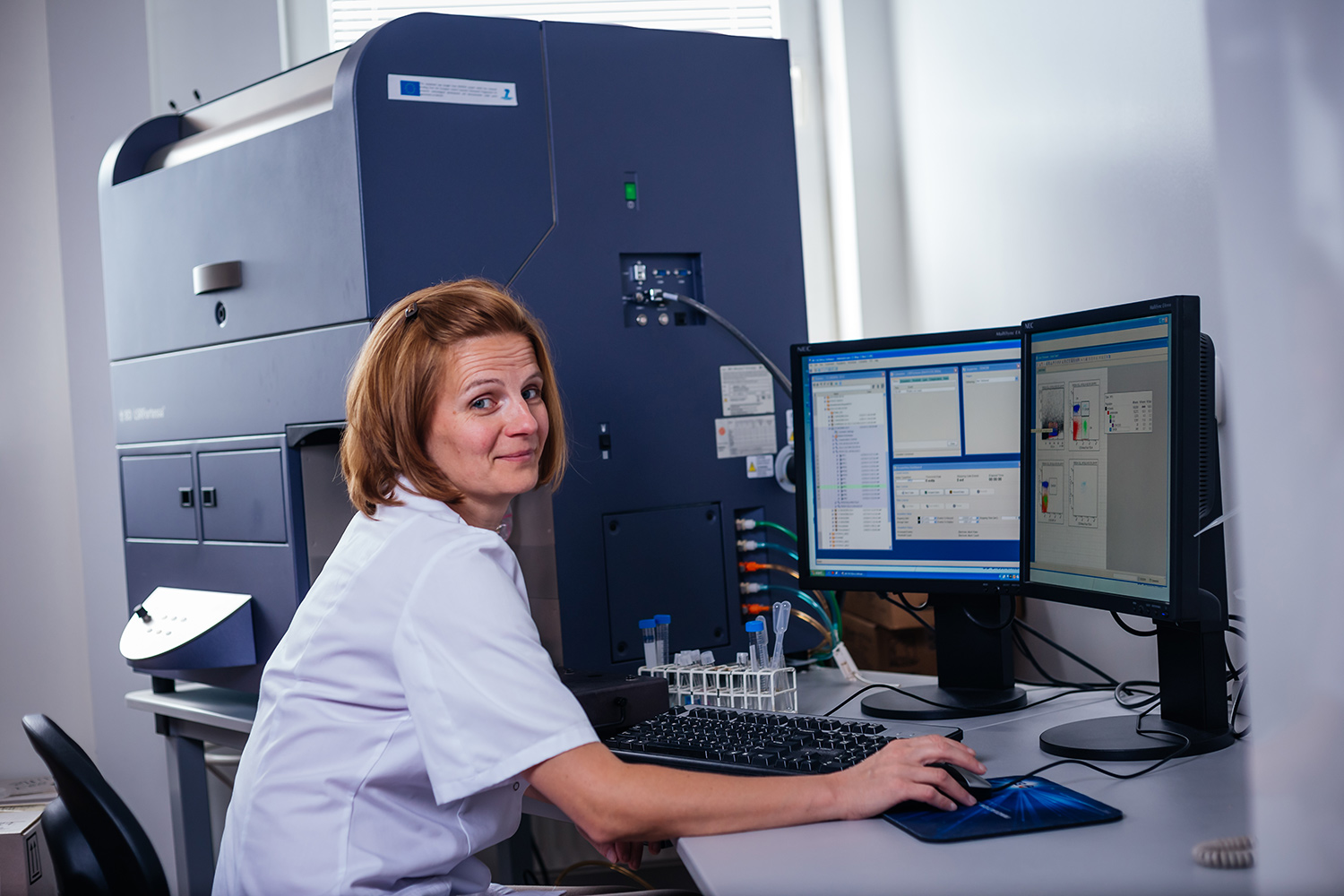Lymphocytes are white blood cells that regulate the immune system. If they have some „experience”, e.g. with an allergenic protein and get transplanted into another organism, then such a transfer will strengthen the immune reaction and the body will start to defend itself better against this protein.
Such an experiment was conducted by scientists from our Institute. They showed that transplanted CD4+ T cells that were in contact with hen’s egg white enhanced the immune response to it. The results were published in the International Journal of Molecular Science.
– The results of our research may be a step towards developing methods of treating patients with allergies – emphasizes the author of the research, Dr. Dagmara Złotkowska from the Department of Immunology and Food Microbiology IAR&FR PAS in Olsztyn.
HOW ALLERGIES HAPPEN
A food allergy is an abnormal reaction of the body’s immune system to a specific compound, which is an allergen. So it is a type of food hypersensitivity that causes unwanted food reactions, involving the immune system.
In the fight against food allergies, T lymphocytes, i.e. white blood cells, play an important role in regulating the immune system response. – This is a group of cells specializing in defending our body against the undesirable effects of potential allergens – explains Dr. Dagmara Złotkowska.
If we „teached” cells how to recognize and neutralize specific allergenic proteins, these „teachers” could be transferred (e.g. in the form of vaccines) to the body of allergy sufferers to minimize its immune response. – This can be compared to the mechanism of the mRNA vaccine against COVID-19, where – to put it simply – we do not provide the cells with a virus, but with a „set of instructions” on how to produce antibodies – the researcher points out.

EXPERIMENTAL TRANSFER
The team from the Department of Immunology and Food Microbiology of IAR&FR PAS in Olsztyn focused on allergy to hen’s egg protein and the possibility of cross-reactivity with chicken meat proteins. This meat is a common component of the modern diet; allergy to them is relatively rare and occurs independently or in people allergic to egg white (OVA, or ovalbumin, is the main protein found in egg white). CD4+ T cells, on the other hand, are special immune cells that recognize allergens, including the OVA protein.
The experiment involved transplanting experienced (those that had already been in contact with OVA) CD4+ T cells into the body of an animal that was allergic to OVA and fed chicken meat. – It turned out that such a transfer helped to improve the negative immune response to OVA, that is, it strengthened the body’s immune response to the OVA protein, which was previously not recognized and fought off by the immune system. To put it simple, the body began to defend itself better against this protein – indicates Dr. Dagmara Złotkowska.
A CURE FOR FOOD ALLERGY?
The approach of the researchers from Olsztyn is innovative and may contribute to the development of treatment methods for patients with allergies. – So far, the most effective way to treat food allergy is to exercise the elimination diet – which eliminates not only allergens, but also other cross-reacting proteins. I doubt whether we will find a „cure” for allergy in the near future, because many factors and mechanisms affecting it are still not known. The results of our research may, however, be a step towards developing methods of treating patients with allergies, e.g. by giving them „trained” groups of cells that could reduce the immune response to a given allergen. There are still many years of research ahead of us, but the direction seems promising – the researcher concludes.
